Recently an interesting debate has arisen amongst local birders in South-east Queensland. Along the Great Dividing Range of Australia from Far-north Queensland to South-west Victoria two species of ‘Zoothera’ thrush can be found, the Russet-tailed (Zoothera heinei) and Bassian (Zoothera lunulata). Both seem to be present in dense forest but often at different altitudes.
As you can see they can look very similar in plumage, however to the ‘trained ear’ their songs are easy to separate.
If this wasn’t hard enough a new problem has arisen recently, the ‘introduced’ Eurasian Blackbird (Turdus merula) has begun to ‘colonize’ SE Queensland, and has been seen and heard ‘vocalizing’ around Mt Glorious over the past 5 years. They are very easy to identify by sight, however they share a very similar song to the Bassian Thrush.
In the past most experienced birders agreed that the Zoothera thrushes identified on Mt Glorious were almost always Russet-tailed, however recently some local birders are adamant that they are seeing and hearing Bassian Thrushes (possibly migrating) through the area, usually around March. Given that research has suggested that Bassian (which can usually be found at higher-elevations at Lamington NP, Qld and Border Ranges NP, NSW) is a sedentary species these sightings have been questioned, and it appears that these records unfortunately are not accompanied by images or video. One resident and very-competent birder has recorded a ‘song’ but admits that she didn’t get ‘confirmation’ visuals and it has been suggested that the recording is actually the song of a Eurasian Blackbird (See below)

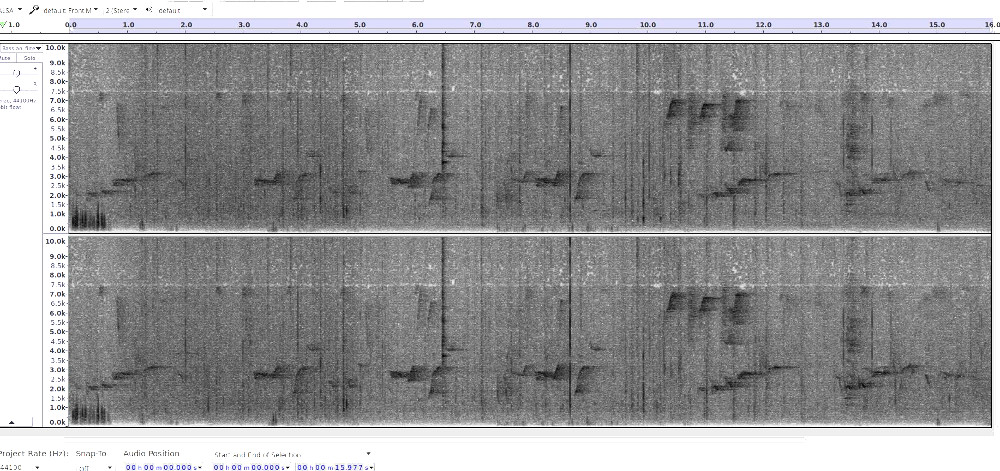
The first (original) audio (and Spectrogram) is difficult to interpret so using Audacity software I’ve ‘filtered’, added gain to it and removed space between vocalizations, to highlight the patterns in the sound. Please compare this with the audio and images of other Bassian Thrush and Eurasian Blackbirds, to my ear the original looks (..and sounds!) very similar to the other Bassian and quite different from the Eurasian Blackbird, however I have only chosen the calls of recorded birds from Australia amongst the 2982 on the Xeno-Canto site. (Note: There are only 9 Bassian Thrush uploads on this site!)
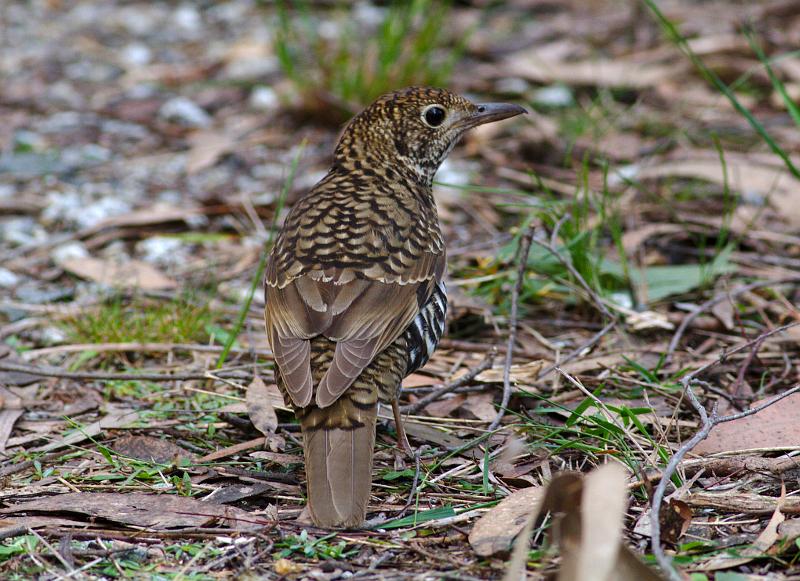
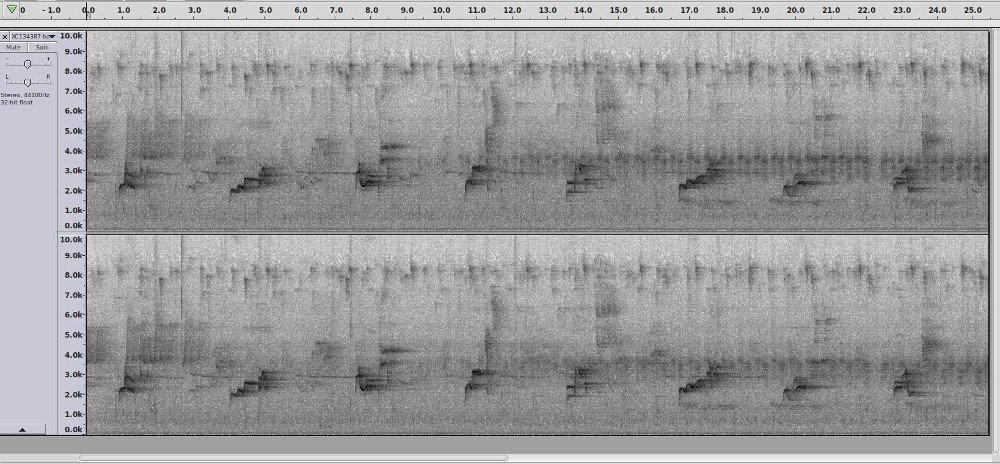
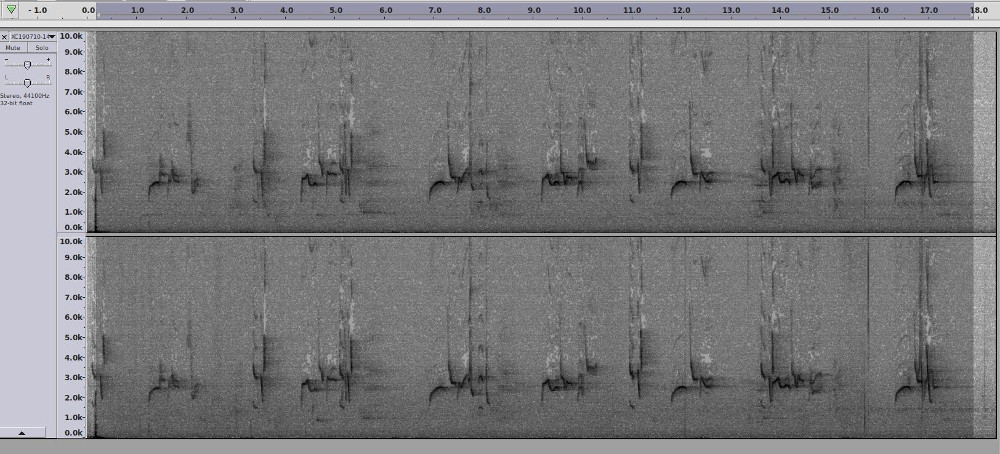
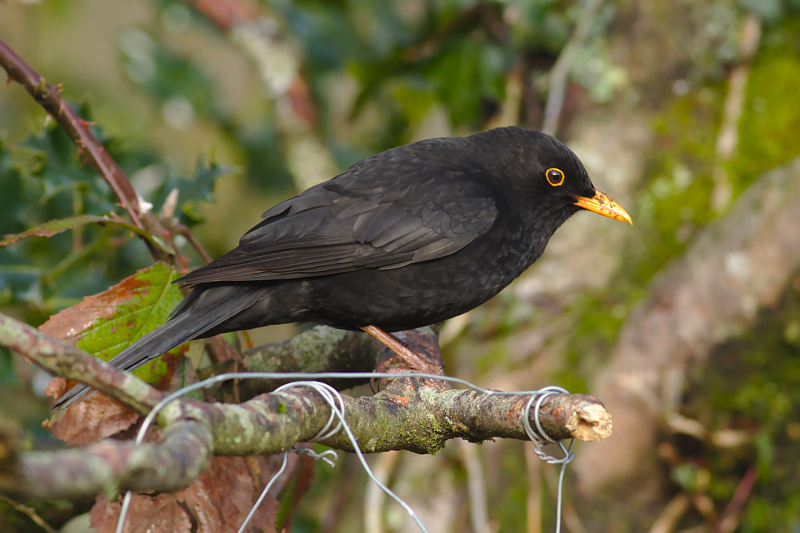

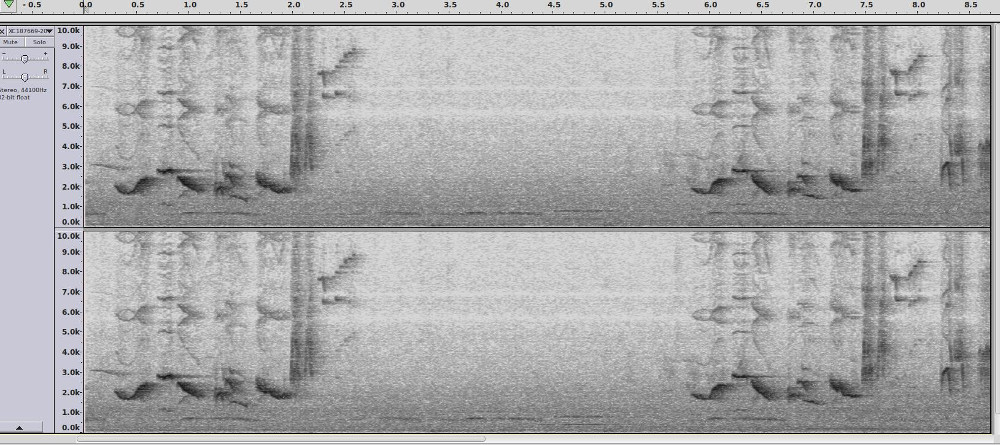
Personally, after going through all these calls and others online I think the two species sound quite individual and the spectrograms only enhance this, to me, the Bassian seems more repetitive and ‘structured’ where the Blackbird tends to sound slightly more random.Please analyse the spectograms and let me know which species you think is singing on the ‘original’ recording, It is probably worth analyzing other recordings online on various sites:
Initially I tried to create a ‘poll’ to record viewer-choice but it was a rather to difficult to administer, if you would like to express an opinion please just leave a comment.
Links to other online audio sites
Xeno-Canto: Zoothera_lunulata : Turdus merula
Macauley Library: Zoothera lunulata : Turdus merula
HBW: Zoothera lunulata : Turdus merula


Leave a Reply